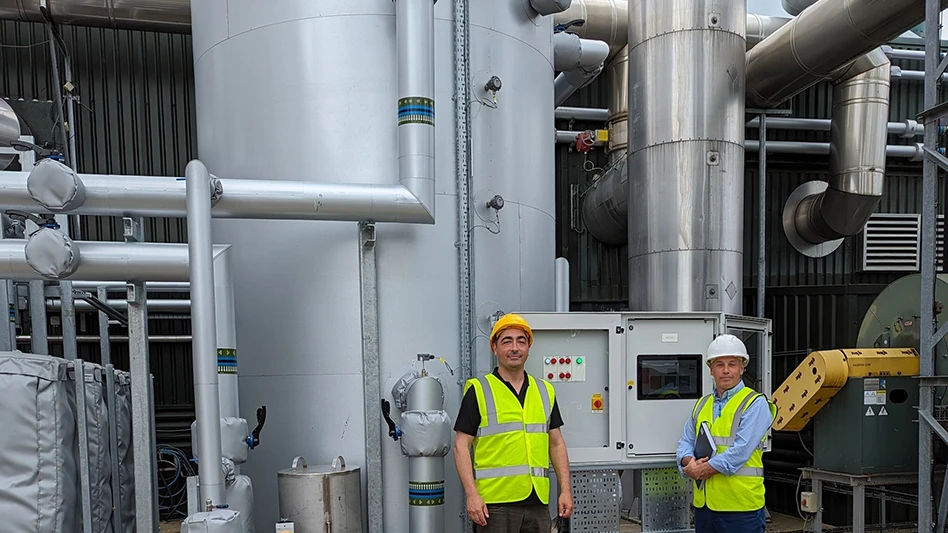
Photo courtesy The Hain Celestial Group
HOBOKEN, N.J. — The Hain Celestial Group has made a significant investment into a decarbonization project at its main UK manufacturing facility at Histon in Cambridgeshire, U.K. The initiative contributes to Hain's Global Impact Strategy and its goal to reduce GHG emissions 42% in its facilities globally by 2030.
Histon is the production site of many of Hain's brands, including Hartley's jams and jellies, Robertson's, Frank Cooper's, and Rose's marmalades, as well as Clarks maple syrup.
The investments at Histon include an upgrade of the anaerobic digestion (AD) plant at the site, which processes fruit waste to create biogas. This in turn is used to generate electricity through an efficient combined heat and power (CHP) unit, with the heat used to produce hot water for use on site, creating an efficient 'closed loop' energy system with fruit at its core.
The new AD plant will more than double the energy being produced from waste fruit. This will take the total green energy generated onsite to 25% of the facility's total electricity requirements.
"We're incredibly proud of the work that's been done at Histon," said Benjamin Jeffery, sustainability lead at Hain Celestial. "After seeing the initial positive results and improvements, we are delighted to be installing a second combined heat and power system to generate even more sustainably sourced electricity on-site."
Histon, which is also ISO 14001 certified, is a model for Hain's ambitious approach to creating a healthier planet and will inspire other decarbonization activity across the global portfolio. The group has set goals aligned with the Science Based Targets Initiative (SBTI) to cut Scope 1 and 2 emissions by 42% by FY 2030, and Scope 3 by 25%, both versus a 2022 baseline.
The group is also targeting 100% renewable energy use and 90% diversion of food waste from landfill across its global portfolio by 2025, additional targets powered up by the fruit at Histon.
"Histon represents a significant step forward in our commitment to reduce our environmental impact and enhance sustainability across our global operations," said Chris Jenkins, global head of impact at Hain Celestial. "Our investment in decarbonization technologies, including anaerobic digestion, serves as a prime example of our commitment to environmentally sound business practices as we leverage innovative solutions to help power a healthier planet and healthier people."
Latest from Quality Assurance & Food Safety
- Chef Robotics Introduces Pat-Down Capability for Meal Presentation and Sealing
- USDA Launches Regenerative Pilot Program
- Indoor Ag-Con Adds Food Safety Track to Conference Lineup
- IDFA Recognizes Federal Officials for Support of U.S. Dairy Industry
- Tetra Pak Acquires Bioreactors.net
- Fresh Del Monte Receives Rabobank Leadership Award
- São Paulo Earns Guinness World Record for Largest Municipal Food Security Program
- KPM Analytics Releases Ready-to-Use NIR Calibration Packages





